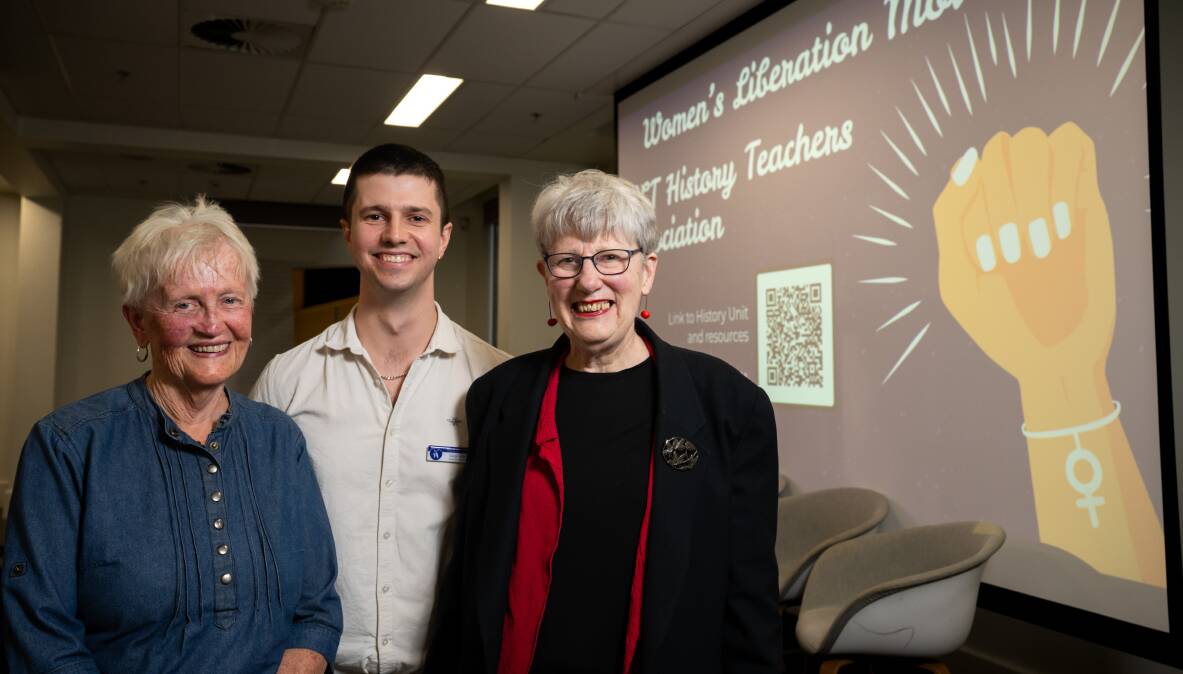Long before the Me Too movement, women of the 1960s and '70s were fighting for basic rights and freedoms in the workplace and in the home.
The women who fought for for equal pay, reproductive rights and against family violence have finally made their way onto the pages of history in version 9 of the Australian curriculum in year 10 history.
Activist and author Biff Ward said it was extraordinary she had become part of history, one that was about profound, revolutionary change.
"I think it really helps people to appreciate their lives to know some of where it came from," Ms Ward said.
"And I also think that enables them to know in their very being, the core of their being, that ordinary people can bring about change in the direction that makes the world a better place."
When Ms Ward was in school, the only careers women were encouraged to enter were mothering ones: nursing and teaching. They were expected to leave their jobs if they got married.
"The word women and career never occurred in the same paragraph, probably the same book, let alone a sentence. It wasn't a thing," she said.
"There was all this attack about latchkey children, [they said] 'you'll ruin your children' and the struggle was to be a working mother."

Elizabeth Reid was appointed as Australia's - and the world's - first women's affairs adviser to government. Prime minister Gough Whitlam's private secretary Peter Wilenski pushed for the role to be established.
"Peter said to Whitlam, 'You must take somebody onto your staff that knows the women's liberation movement. This is the most important social movement of our times and you can't ignore it'," Ms Reid said.
"And so Whitlam took his advice, advertised in the paper and 420 people applied."
Many of the women in the liberation movement were also part of the anti-Vietnam War movement.
"We were politically quite savvy," Ms Ward said.
"We learnt a lot of things just by sitting around while men talk all the time."
Once the men were out of the room, the women discovered they had a lot to talk about. From there, a powerful movement grew.
"I think one of the profound things that made us so successful is we overnight discovered we had a lot to say to each other and in that process, bang, bang, bang, every meeting we were learning new things and thinking new things that had never happened in our lives before," Ms Ward said.
Melrose High School humanities and social sciences teacher Oscar Jolly said the new history unit filled a gap in students' knowledge of Australian history.
"They can talk about the right to vote, but there's a real missing link between the right to vote and when students look back at what they'll call more traditional lives that women lived to where women are today," Mr Jolly said.
He said students could mistakenly assume progress naturally happened in society if they didn't learn about the people who fought hard for the rights people have today.
On Thursday, the ACT History Teachers Association hosted an event at the National Archives to help teachers incorporate the new content into their lessons.
"I think all teachers across the country are really overworked at the moment. The curriculum can change but what can sometimes happen is that teachers who are just trying to get through their week will sometimes just shove or force the old curriculum that they had into the new one," Mr Jolly said.
"It's a really crucial moment right now to celebrate, provide as many resources as possible and to hear from the people of this movement to try to get this in as many classrooms as possible."
While today's students may be inspired by what the women's liberation movement achieved, history cannot repeat itself.
"It's a different time. People think and feel differently and they have to create their own movements and revolutions out of that and what the conditions are now for them," Ms Ward said.
We've made it a whole lot easier for you to have your say. Our new comment platform requires only one log-in to access articles and to join the discussion on The Canberra Times website. Find out how to register so you can enjoy civil, friendly and engaging discussions. See our moderation policy here.







